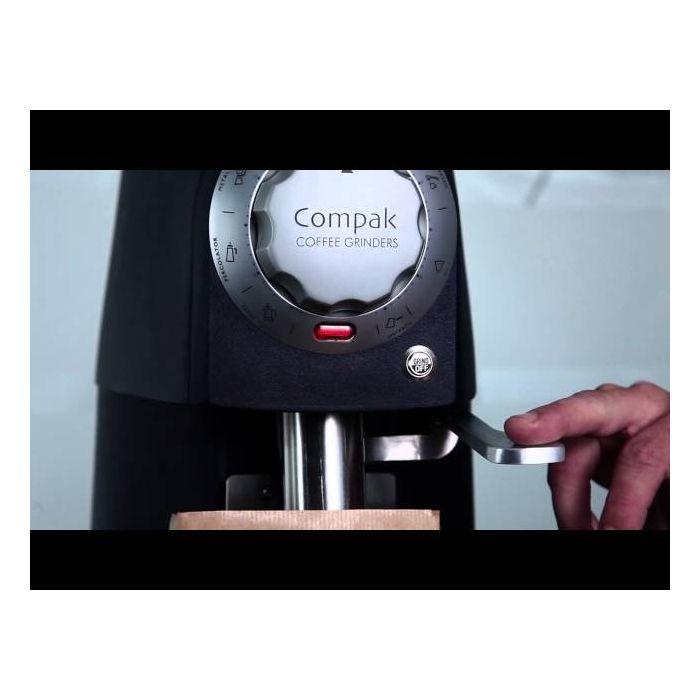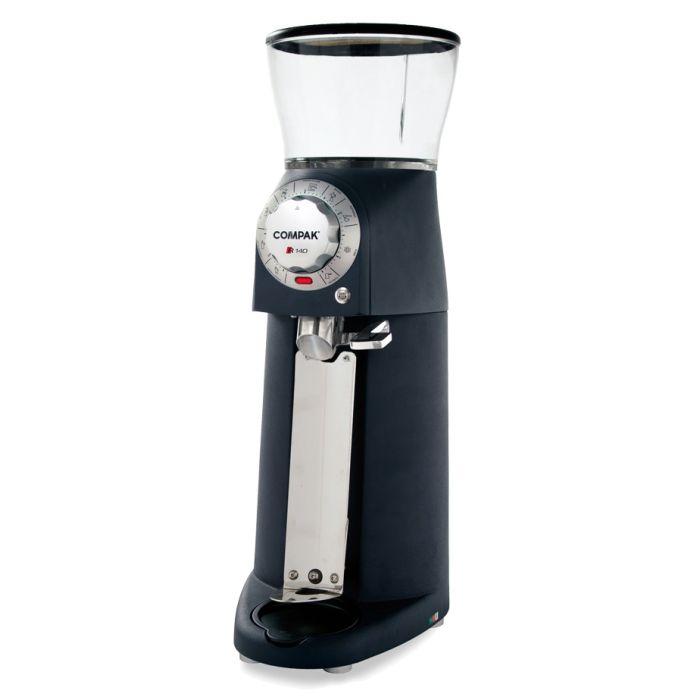A New User's Guide to Industrial Coffee Grinder Options
A New User's Guide to Industrial Coffee Grinder Options
Blog Article
Exactly How to Pick the Perfect Industrial Coffee Grinder for Your Service
Choosing the ideal industrial coffee grinder for your organization is a diverse choice that requires mindful factor to consider of numerous crucial variables. In addition, recognizing the different types of grinders readily available can considerably affect your operational efficiency.
Assess Your Grinding Demands
When picking an industrial coffee grinder, one should initially analyze their grinding needs to make certain optimal efficiency and consistency. This initial analysis involves understanding the quantity of coffee to be refined daily, in addition to the preferred work dimension for numerous brewing methods. A high-capacity mill may be needed for organizations offering large amounts of coffee, while smaller procedures might find a much more small version enough.
Moreover, it is vital to consider the sorts of coffee beans being used, as different beans might need details grinding strategies to accomplish the most effective taste profile. Oily beans could require a mill created to manage such features without clumping or overheating.
One more essential aspect is the needed grind consistency. Specialized coffee organizations commonly require exact work sizes to enhance removal and flavor, making it important to select a mill that can provide uniform outcomes. Reviewing the available area and electrical requirements will certainly help in selecting a grinder that fits perfectly into your operational operations. By thoroughly examining these elements, businesses can make informed choices that align with their coffee grinding needs, ultimately causing an exceptional item and completely satisfied clients.
Understand Grinder Kind
Comprehending the different sorts of commercial coffee grinders is vital for making an educated selection that satisfies particular functional demands. There are primarily two categories of mills: blade grinders and burr grinders.
Blade grinders make use of rotating blades to cut the coffee beans, resulting in an irregular work dimension - Industrial Coffee Grinder. While they might be extra economical, they are commonly not appropriate for commercial applications where precision is vital
On the other hand, burr grinders supply an extra uniform work by crushing the beans between two surface areas. They can be further categorized right into flat burr and conelike burr grinders. Flat burr mills offer a consistent grind dimension and are typically favored for espresso preparation, while conelike burr grinders are flexible and can manage a variety of mixture approaches, from coffee to French press.
When picking a grinder, consider the particular demands of your service, including desired work uniformity, manufacturing quantity, and the kinds of coffee drinks you prepare to use - Industrial Coffee Grinder. Each mill type has its restrictions and advantages, so comprehending these subtleties allows educated decision-making that straightens with functional goals
Evaluate Work Dimension Consistency
Achieving work size uniformity is essential for producing high-quality coffee, as variants in particle size can considerably influence extraction and taste. When choosing an industrial coffee grinder, it is essential to review exactly how well the maker maintains harmony in work size across different sets. Inconsistent work dimensions can cause unequal removal, resulting in a cup that might taste excessively bitter or weak.
To examine grind dimension consistency, consider mills with attributes such as flexible grind setups and high-grade burrs. Burr mills, specifically, excel in creating consistent bit dimensions compared to blade mills. The material and shape of the burrs play a crucial function, with stainless steel and ceramic alternatives offering longevity and precision.

Take Into Consideration Manufacturing Capacity
In the busy world of coffee production, considering manufacturing capability is extremely important for companies intending to meet need without sacrificing high quality. The production capacity of an industrial coffee grinder directly affects a firm's capacity to meet orders effectively, handle stock, and reply to rising and fall market trends.
When examining manufacturing capacity, it is vital to assess the mill's result rate, commonly measured in extra pounds per hour. This measurement must line up with your business's projected sales volume and development targets. For example, a coffee shop with a high turnover might require a mill that can refine a number of hundred pounds daily, while a smaller sized procedure could be enough with a lower capacity version.
In addition, take into consideration the sort of coffee being refined. Different beans and blends might impact grinding speed and efficiency, description demanding a grinder with the ability of managing diverse manufacturing demands. It's likewise worth considering the grinder's ability to preserve regular top quality under high result problems, as any variations can influence the final item.
Inevitably, choosing a mill that matches your business's production capacity will ensure you stay receptive and competitive to consumer expectations.

Budget and Maintenance Aspects
When assessing the best industrial coffee mill, spending plan and upkeep elements play a substantial duty in the total decision-making process,. A preliminary financial investment in a premium mill can generate long-term benefits, however it's necessary to develop a clear budget that aligns with your service's functional requirements. Take into consideration both the acquisition rate and potential operational costs, such as energy usage and replacement parts.
Industrial coffee mills call for normal maintenance to ensure ideal performance and durability. Evaluate the manufacturer's recommendations for upkeep, consisting of cleaning routines and components substitute, as these will certainly impact long-term functional prices.

Purchasing a mill that is durable yet simple to preserve can save cash in time. While lower-priced options may be appealing, they might incur greater upkeep costs and lowered efficiency. Ultimately, stabilizing preliminary expenses with long-lasting maintenance and functional performance will certainly his explanation guide you to the most effective selection for your service's coffee grinding requirements.
Verdict
Selecting the ideal industrial coffee mill demands a detailed examination of grinding needs, grinder kinds, grind dimension consistency, production ability, and budgetary factors to consider. A well-chosen grinder not just enhances the quality of the coffee generated however also contributes to the general success and profitability of the enterprise.
Specialty coffee organizations typically demand accurate grind sizes to improve extraction and flavor, making it vital to choose a mill that can supply consistent results. Flat burr mills supply a regular grind size and are generally favored for coffee prep work, click to read more while cone-shaped burr grinders are versatile and can deal with a range of brew approaches, from espresso to French press.
When selecting an industrial coffee mill, it is vital to examine exactly how well the machine keeps harmony in grind dimension across different sets. Burr grinders, in particular, succeed in creating uniform fragment sizes contrasted to blade mills.Choosing the perfect industrial coffee mill requires an extensive evaluation of grinding demands, grinder types, grind dimension consistency, manufacturing capacity, and budgetary factors to consider.
Report this page